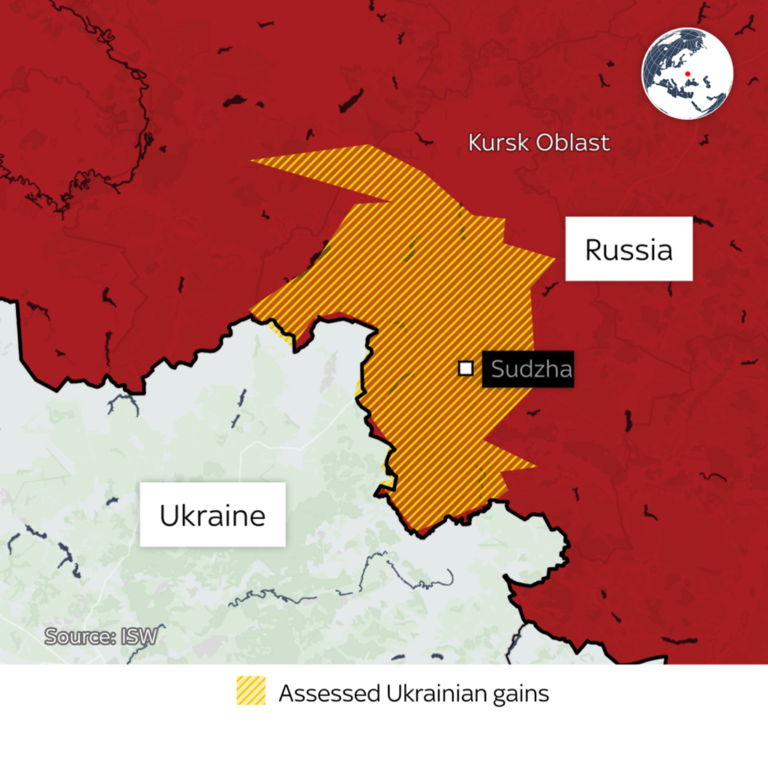Tuesday’s markets tumble hints at investor unease—but not enough, warns the CEO of one of the world’s largest independent financial advisory and asset management organizations.
The warning from deVere Group’s Nigel Green comes as markets appear surprisingly restrained given the significant escalation in geopolitical tensions, notably Ukraine’s deployment of US-made ATACMS missiles on Russian soil following apparent approval from Washington.
He says: “This somewhat restrained response from market should sound an alarm for investors. The combination of rising geopolitical uncertainty, potential tariff adjustments under the Trump administration, the potential return of rising inflation, and other global risks, like tensions over Taiwan, is a recipe for heightened market volatility.
“The danger now lies in underestimating these threats and failing to take proactive measures to safeguard portfolios.”
The escalation in Ukraine marks a critical moment. With Kyiv targeting Russian military infrastructure using advanced US weaponry, Moscow has signaled an alarming readiness for nuclear confrontation.
This could lead to a further unraveling of global stability, with far-reaching economic and financial implications.
“Investors typically react strongly to such developments, but the limited selloff so far suggests that markets may be discounting the long-term consequences. Any further escalations—whether retaliatory actions by Russia or heightened US involvement—could trigger sharper corrections, particularly in risk-sensitive sectors and currencies.”
Adding to the unease, markets face uncertainty from the incoming Trump administration, which has signaled a return to protectionist policies. A potential revival of tariffs could hit global supply chains, disrupt trade flows, and exacerbate inflationary pressures.
“While investors may welcome some of the administration’s business-friendly policies, the risks of erratic decision-making and geopolitical posturing remain high.
“Tariffs and trade restrictions often lead to unintended consequences, including higher costs for businesses and consumers. In this environment, companies heavily reliant on international trade or sensitive to commodity price swings may be particularly vulnerable,” notes Nigel Green.
Other Geopolitical Risks Looming Large
Beyond Ukraine, tensions in East Asia are simmering. Taiwan and China remain key flashpoints, with any missteps threatening to destabilize the region and roil global markets.
“As the world’s economic and technological nexus, disruptions in East Asia could have a disproportionate impact on industries ranging from semiconductors to consumer electronics.
“Investors should not ignore the interconnected nature of these risks. A flare-up in one region could quickly spill over into others, amplifying the challenges for policymakers and businesses alike,” continues the deVere CEO.
The relative calm in markets despite these growing threats is a risky signal.
He goes on to add: “Complacency now could leave portfolios exposed to sharp losses if conditions worsen. Investors must prioritize diversification, focusing on defensive assets like gold and utilities, and maintain a long-term perspective while navigating this uncertain landscape.
“Opportunities do exist amid the turbulence. Companies in sectors like defense, cybersecurity, and energy may benefit from the shifting geopolitical landscape. At the same time, rising volatility can create attractive entry points for those prepared to act decisively.”
History shows us that geopolitical shocks often have outsized impacts on markets, particularly when they coincide with economic uncertainty. Investors must remain vigilant and proactive, positioning themselves not just to weather potential storms but also to capitalize on emerging opportunities.
Nigel Green concludes: “As we face a world fraught with uncertainty, the message is clear: complacency is not an option. Markets may have reacted modestly so far, but the true test lies ahead. Now is the time to prepare, adapt, and stay ahead of the curve.”








